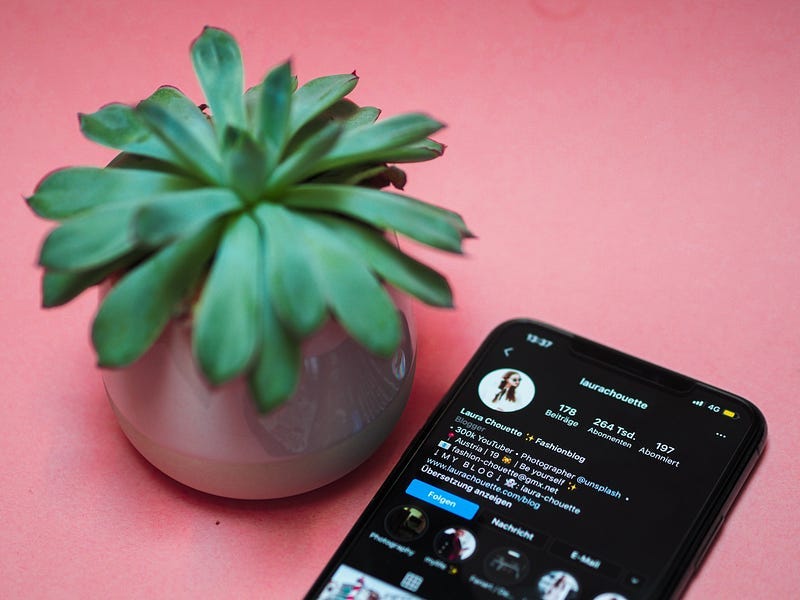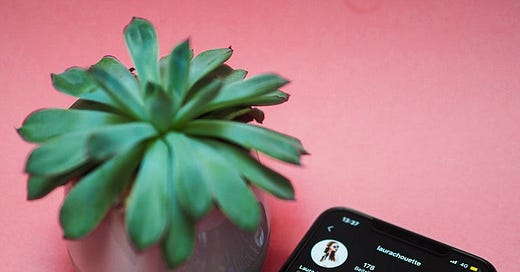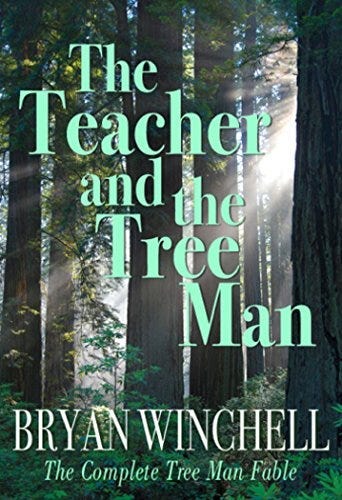Using Love to Clear the Cesspool of Social Media
In 1998, I was given a choice— use the Internet to love or to hate? — and choosing love was one of the best choices I’ve ever made
In 1998, I was given a choice— use the Internet to love or to hate? — and choosing love was one of the best choices I’ve ever made

A stormy November night in 1998 in the family room of the house I grew up in and I’m in another world.
Staring at my dad’s new PC, I’m watching names like Sunshine, Jack Straw and Sugaree83 flash by me on the screen, each with a comment attached. They come too fast to read them all, I gotta pick one.
Fucking shitty Washington weather, the 25-year-old who’s just moved home from Los Angeles thinks, Sunshine it is.
I read her comments and a picture emerges: she’s a Colorado gal, a mother of a toddler, into spiritual stuff and reads palms. Oh, and like me, she’s a Deadhead. Intrigued, I am about to send a greeting when:
“YOU CAN USE SOCIAL MEDIA FOR HATE OR LOVE,” a voice booms like a burning bush in my head, “WHICH IS IT?”
Bugger off.
“I HEARD THAT.”
“Of course you did,” I respond, this time out loud because my parents are out to dinner somewhere. “But why do I have to make this choice?”
“Not to worry,” the voice says, toning down some, “you’ll still mess this up sometimes. But listen: this is important. Who do you want to be? The guy who spews hate into the world? Or the guy who spreads love?”
“Seems like an easy question when you put it that way,” I say. “The love guy.”
“Good,” the voice says. “But don’t forget. Love hurts. And that’s why you all don’t do it enough.”
The voice doesn’t need to tell me this. Much of the reason I nearly killed myself on the path of drug addiction was my increasing disillusionment over the world, recognizing how cold-hearted we can be to each other, how often we reject each other’s love.
“Your bodies are separate in this new ‘on-line’ world,” the voice says, “and this protects you some. Haters can hate without getting punched. Lovers can love without seeing fear or rejection in the eye of the other. Your heart won’t break so easily. At least some of the time.”
“Why’d you have to add that last part? Hate sounds safer.”
“It is,” the voice says, “for now. But long-term, trust me, you’ll be happy you chose love.”
“Okay,” I say, “I trust you. Love it is.”
And with that, the voice went silent and I began to type: “Hi Sunshine! I bet Colorado is nicer this evening than Washington where I’m at…”
The Pearl of this Post
22 years later I can confidently say:
You can use social media to love each other and it will make your life — and the lives of those you interact with — so much better. Oh, and the world, or at least your perspective on it, will improve, too.
Read on if you want more convincing.
The Giddy Early Days of Social Media When Loving Online Was Easier
I don’t know what happened to Sunshine. We were online friends over the next several months, but like friends in real life, people come, people go.
Still, when you use social media to love, you’ll find people come, and often stay, a lot easier and longer.
And those that fade away usually do so on good terms. Or maybe their life has just taken them off social media, so on no terms at all. The point is usually they won’t leave on negative terms. (I say “usually” because the intensity of the past few years has led to some on-line splits that weren’t so magnanimous but you can’t win them all.)
There are some things I remember about those early years of social media and one is that if you went into a room discussing something like one’s favorite band as I did with the AOL Grateful Dead chat room, well, 90 percent of the conversation was more than cordial, it was often giddy.
It was all so new then, this ability to chat with people who were outside of our physical environment and who weren’t on the other end of a phone plugged into a wall. In addition, the cultural zeitgeist, while it had its issues, was a lot more stable and hopeful than today.
We were on the cusp of a new millennium and there was, among many of us, a sense that we could create a much better world in the 21st century and this technology was going to play a key role in that.
The early cyberpunk idea was that networked computers would let us do our work at home, as freelancers, and then transact directly with peers over networks. Digital technology would create tremendous slack, allow us to apply its asynchronous, decentralized qualities to our own work and lives.” — Futurist Douglas Rushkoff
The problem is, we weren’t given a User’s Manual. Well, at least most of us weren’t. You see, I have a feeling there are others out there who sometimes get those messages from an inner voice, and perhaps their voice asked them the same question mine asked me: Use this thing with love or hate?
Why do I think so?
Because I started to find them.
Hate Feels Like Crap, Love Is Better … and Pays Off
Now, it took some time. And as my intuition told me, I’d screw up. I’d use the Internet to rant my frustrations on others, knowing the only thing they could do is respond with their vitriol.
As a dude who’s never won a fistfight (and thus learned strategies to avoid them), having a technology that allowed me to attack someone without fear of a punch in the face was a godsend. Or more like a demon send.
You see, I started to pay attention to how I felt when I used the Internet this way. I’d hop on a PC in an agitated state, spend an hour or so “flaming” others and then, when I signed off, I’d be even more agitated than before.
That behavior didn’t serve me. It was like an addiction; the short-term rush eased the agitation but once offline and more agitated, this downward spiral only fueled the negative behavior.
In short, hating hurt.
Methods Of How To Love Online
Loving, on the other hand, is awesome.
Even before the millennium, I found one way it improved my life was by making on-line friends who turned into real-world ones. For example, in another music chat room, I met a dude from the east coast who was out west doing volunteer work, and we found out we were also members of a psychedelic chat room that had perhaps 200 people. We were both friends with this old hippie lady in San Francisco, so we drove down there, met her, she took us to a great dinner, had her join us to see the band me and him loved and then we stayed at her house.
Such stories are old hat by now, right? Everyone knows one can meet people online who become IRL friends. The thing is, back then it was seen as risky behavior but I trusted it because I trusted my intuition.
Still, maybe you are thinking: Okay, silly guy, let’s take this part off memory lane and into 2020, give us something that works now!
Five Keys To Loving Online
Take chances, reach out to people you may feel you aren’t “worthy” to connect with.
Send gratitude!
See past disagreements and connect to the humanity in the other.
Have a sense of humor
Have a thick skin
1. Take a Chance and Reach Out To Someone
In early 2009 I was listening to a podcast and the guest was a woman who had a spiritual take on what was happening in terms of the developing economic crisis of that time.
I loved what she had to say. I wanted to converse with her and hear more. So I went to Facebook and friended her. 11 years later, and this woman is like the wise aunt I’d always longed to have … and now do. She’s helped me through some pretty difficult times this past decade; I honestly don’t know if I’d have made it without her.
And her husband’s a great dude, too. In fact, he designed the cover for my novel pro bono and I think he did a kick-ass job.
And had 2020 stayed on a “normal,” non-pandemic timeline, I was going to, at last, spend some time in person with these two awesome people. I’ve watched both of them over the years and they’ve definitely used social media to love.
2. Send Gratitude
This connects to the first one. What I do is I often send artists — musicians, writers, directors, actors, podcasters, narrators, etc. — messages of gratitude (usually via Twitter). When I do this, I do it with no expectation of a return, not even a “like,” nothing. It’s a gift because they gave me a gift.
However, sometimes they do respond and, I admit, that elevates my mood. You never know who might respond or what they’ll say. And again, this one’s easy, you aren’t taking any chances. Plus, I know from receiving gratitude that it makes me feel good so I like to imagine this person reading my message and getting that extra bit of love juice.
3. See Past Disagreements, See The Humanity In Others
This may be the most challenging, especially this year, but also the most important.
I’m going to use an elderly lady I met in 2014 on Facebook and remain friends with. We bonded over our distrust of/disgust with the corruption of the U.S. government and mass media and found we had some similar spiritual interests, too.
That said, she’s swayed by the right-wing perspective and, well, I’m just not. I think Trump is a sorry excuse for a human being and an even worse president. She disagrees. Yet, despite that, at the end of the day, we can talk spirituality or we often chat about our respective families.
So, simply determining that you aren’t going to hate this person despite the nonsense in their head and that you are going to find something to bond over goes a long way. I think in most cases it’s there. Just get really simple; family stuff, hobbies, heck, even the weather, everyone likes to gripe about it (and some appreciate celebrating it).
Love Ain’t Easy All The Time, But What Have We Got to Lose?
My 11 active years on social media, especially Facebook, have led to all sorts of deep, meaningful, loving relationships. Often I tell people on my page I love them; often they say the same to me. Some of my friends struggle with this.
“Isn’t it creepy when that dude from Turkey tells you he loves you?” one asked me.
“Nope,” I replied. “Makes me feel good. And I love him, too.”
I’ve disagreed with that Turkish friend; he’s told me I should give up writing after he read one of my more manic short stories and he’s a vehement death penalty guy.
Still, I love him.
(Since writing this draft, he contacted me after I hadn’t heard from him in about a year and told me he was now helping manage a small hotel in Istanbul and I was welcome to come stay there any time! Score one for Team Love!).
You see, using the Internet to love doesn’t mean we don’t get into arguments, or we don’t hold our ground. It means, in a way, that we have such discussions knowing we can always end with, “Let’s agree to disagree.” And still love the other person, despite their stupid opinion. (That’s a joke).
All of this is because I choose love.
So while I don’t totally deny the mea culpa’s by fellow Gen Xers about how we were too positive about the Internet’s potential and how, instead, it is destroying us, I often think: No, it’s how we are using it that’s worsening our culture (destroying us seems overwrought).
2020 is a year where we can make massive changes — both personally and collectively. Systems are crashing and new ones are taking form. Can we re-invent the Internet? Or at least how we use it?
With that question in mind, I’ll repeat that phrase from 1998 (but I’ll spare you the booming voice inside your head):
“You can use social media for hate or love, which is it?”
Thanks for reading! You can support me simply by sharing my stuff, by linking to me on Twitter, by checking out my old blog, by listening to my podcast, The B&P Realm Podcast, or by reading my 2015 novel, “The Teacher and the Tree Man.” You can find that book in full here, or you can find it broken down into four shorter books (book 1, book 2, book 3 and book 4).





This really resonates. Social media is a tool - neither good nor bad on its own - but how we wield it makes all the difference. Your story about hearing that inner voice in 1998 is spot on, and I feel like that choice: love or hate, is one we keep facing, again and again, especially now.
And oh yes, spring 2025 is going to be a boom. Pluto in Aquarius, Uranus in Gemini... everything is shifting, especially how we communicate and connect. Social media already played a massive role in dismantling the Covid narrative, proving that these platforms, despite their flaws, can be used for truth and empowerment.
Personally, I have a love-hate relationship with Facebook and Instagram - their fake, polished energy feels unbearable to me, but I also know that energy can be flipped into real power. We’ll see how it all plays out, but one thing is certain: consciousness is shifting, and the way we use technology will be a major part of it.
Thanks for this post, really got me thinking!